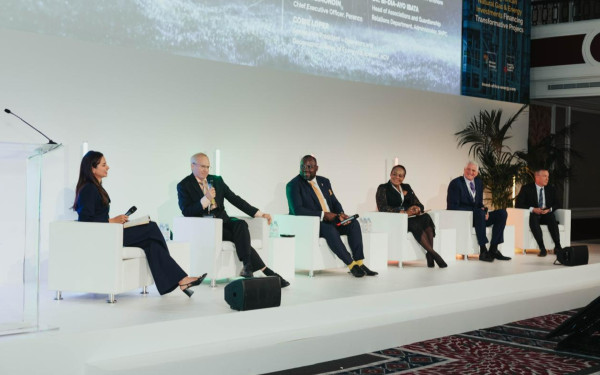Africa’s LNG export capacity is projected to grow in the coming years, with countries such as Nigeria expected to increase output from 22 million tons per annum (mtpa) to over 31 mtpa. Mozambique also has aspirations to raise output from 2.2 mtpa to well over 43 mtpa by the end of the decade. Production growth – in tandem with new discoveries made in Namibia, Ivory Coast and Senegal – affirm the continent’s potential role as a global LNG exporter.
A critical exploration of Africa’s gas and LNG industry future took place during the Invest in African Energy Forum in Paris. Against the backdrop of African deepwater gas, LNG and FLNG projects, countries including Senegal, The Republic of the Congo and Mozambique are ascending as formidable exporters, spearheading a transformative charge. Simultaneously, pivotal gas initiatives in Ivory Coast, Nigeria and Angola stand poised to catalyze domestic industrialization efforts, heralding a new era of economic growth and energy sustainability across the continent.
Sponsored by independent oil company Perenco, the discussion delved into market outlooks, investment trends, regulatory strategies, technological advancements and new players in the African LNG landscape.
Per Magnus Nysveen, Senior Partner&Head of Analysis at Rystad Energy, set the tone for the conversation, emphasizing the increasing demand for LNG as a transition energy. “Africa has the potential to contribute to one-fourth of global gas production, while utilizing resources equitably to address energy poverty,” he said.
Armel Simondin, CEO of Perenco, outlined the company’s strategy in Africa: “We have been involved in gas projects since the 2010s in Africa and we are also involved in gas-to-power projects. Our Gabon project combines gas-to-power and LPG, we will build and develop a tech savvy LPG processing facility in the country.”
Julius Rone, Group Managing Director of UTM Offshore, provided updates on Nigeria’s first indigenous-owned Floating LNG project. UTM FLNG is a floating natural gas liquefaction facility being developed in Akwa Ibom State, Nigeria. It is the first FLNG project to be developed in the country. UTM Offshore is developing the project with an estimated investment of $5 billion.
“We aim to be the first LNG project spearheaded by a local company in Africa. We believe that in Q3 2028 the project will be completed,” he said.
Dr. Bi-Dia-Ayo Ibata, Head of Associations and Guardianship Relations Department, Administrator, SNPC, shared insights into the rapid development of the gas project between Eni and SNPC in the Republic of the Congo. “This project has been one of the fastest in the history of the Congo. The first cargo was sent to Italy in February. The initial phase started with 0.6 mtpa, then increased to 2.6 mtpa by 2025, and beyond that, we plan to produce 3 million tons,” said Ibata.
When asked about the biggest challenges in developing gas projects in Africa, speakers highlighted various obstacles. Ibata underscored the importance of environmental considerations in energy development, advocating for cleaner energy solutions like hydrogen and gas. Rone identified financing as a major hurdle, urging financial institutions to support hydrocarbon projects. Simondin cited infrastructure development and fiscal stability as critical challenges for gas projects.
Meanwhile, Cobie Loper, SVP, Operators and Geographical Sales for Energy Equipment at NOV, emphasized the need to adapt technology to project needs amid the energy transition, stating that, “As an industry, we are still tight with our capital.”
The need for energy access in Africa remains pressing, with 600 million Africans still lacking electricity and clean cooking facilities. “We know that in the West, the energy transition from coal to gas has allowed countries to develop, and Africa must do the same with its natural resources,” Dr. Ibata said.
Distributed by APO Group on behalf of Energy Capital&Power.


